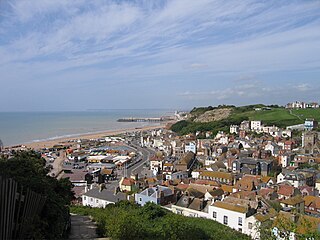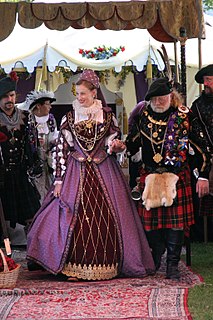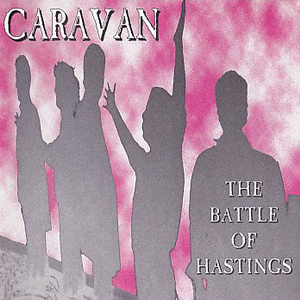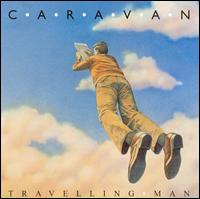
Hastings is a seaside town and borough in East Sussex on the south coast of England, 24 mi (39 km) east to the county town of Lewes and 53 mi (85 km) south east of London. The town gives its name to the Battle of Hastings, which took place 8 mi (13 km) to the north-west at Senlac Hill in 1066. It later became one of the medieval Cinque Ports. In the 19th century, it was a popular seaside resort, as the railway allowed tourists and visitors to reach the town. Today, Hastings is a fishing port with the UK's largest beach-based fishing fleet. It has an estimated population of 92,855 as of 2018.

The Battle of Hastings was fought on 14 October 1066 between the Norman-French army of William, the Duke of Normandy, and an English army under the Anglo-Saxon King Harold Godwinson, beginning the Norman conquest of England. It took place approximately 7 miles northwest of Hastings, close to the present-day town of Battle, East Sussex, and was a decisive Norman victory.

Battle Abbey is a partially ruined Benedictine abbey in Battle, East Sussex, England. The abbey was built on the site of the Battle of Hastings and dedicated to St Martin of Tours. It is a Scheduled Monument.

Historical reenactment is an educational or entertainment activity in which mainly amateur hobbyists and history enthusiasts put on uniforms and follow a plan to recreate aspects of a historical event or period. This may be as narrow as a specific moment from a battle, such as the reenactment of Pickett's Charge presented during the Great Reunion of 1913, or as broad as an entire period, such as Regency reenactment.

Living history is an activity that incorporates historical tools, activities and dress into an interactive presentation that seeks to give observers and participants a sense of stepping back in time. Although it does not necessarily seek to reenact a specific event in history, living history is similar to, and sometimes incorporates, historical reenactment. Living history is an educational medium used by living history museums, historic sites, heritage interpreters, schools and historical reenactment groups to educate the public or their own members in particular areas of history, such as clothing styles, pastimes and handicrafts, or to simply convey a sense of the everyday life of a certain period in history.
Caravan are an English band from the Canterbury area, founded by former Wilde Flowers members David Sinclair, Richard Sinclair, Pye Hastings and Richard Coughlan in 1968. The band have never achieved the great commercial success that was widely predicted for them at the beginning of their career, but are nevertheless considered a key part of the Canterbury scene, blending psychedelic rock, jazz and classical influences to create a distinctive progressive rock sound.

American Civil War reenactment is an effort to recreate the appearance of a particular battle or other event associated with the American Civil War by hobbyists known as Civil War reenactors, or living historians.

Medieval reenactment is a form of historical reenactment that focuses on re-enacting European history in the period from the fall of Rome to about the end of the 15th century. The second half of this period is often called the Middle Ages. This multiplicity of terms is compounded by the variety of other terms used for the period.

The Battle of Hastings reenactment is a yearly reenactment of the Battle of Hastings, held at Battle Abbey in Battle, East Sussex, UK, and drawing participants from around the world. It takes place every year on the weekend nearest 14 October on the site of the historical battle, although is often arranged across the hill rather than up it, to take account of the smaller number of participants and the need for spectators.
"The Vikings" is a British-based society of re-enactors, dedicated to the study and re-enactment of the culture of the Viking Age (790–1066) and the display of authentic Dark Ages living history and combat.

Combat reenactment is a side of historical reenactment which aims to depict historical forms of combat. This may refer to either single combat, melees involving small groups, or nearly full-scale battles with hundreds of participants.
Dark Ages reenactment is generally considered a sub-branch of Medieval reenactment focussing on the 1st millennium AD beginning with the fall of the Western Roman Empire and ending with the High Middle Ages.

Regia Anglorum, or simply Regia, is a Medieval reenactment organisation reenacting the life and times of the peoples who lived in and around the Islands of Britain from the time of Alfred the Great to Richard the Lionheart. Its members portray Anglo-Saxon, Viking, Norman and British living history from the period before the Norman Conquest. The society has gained in popularity as a result of being featured in prominent television programmes such as Michael Wood on Beowulf, Time Team and A History of Britain.

Olustee Battlefield Historic State Park is a Florida State Park in the Osceola National Forest, near the town of Olustee. The site of Florida's largest Civil War battle, the Battle of Olustee. The park is located 50 miles (80 km) west of Jacksonville and 15 miles (24 km) east of Lake City, on U.S. 90. It also has the distinction of being the first park in the Florida State Park system.

San Jacinto Day is the celebration of the Battle of San Jacinto on April 21, 1836. It was the final battle of the Texas Revolution where Texas won its independence from Mexico.

The Battle of Hastings is the 1995 album released by the British Canterbury scene progressive rock band Caravan.

Travelling Man is a compilation album by the progressive rock group Caravan made of following albums: Cool Water (1994), The Battle of Hastings (1995) and All Over You (1997), except for track 8 which is taken from the very first album Caravan (1968).

The commemoration of the American Civil War is based on the memories of the Civil War that Americans have shaped according to their political, social and cultural circumstances and needs, starting with the Gettysburg Address and the dedication of the Gettysburg cemetery in 1863. Confederates, both veterans and women, were especially active in forging the myth of the Lost Cause of the Confederacy.

A battlefield, battleground, or field of battle is the location of a present or historic battle involving ground warfare. It is commonly understood to be limited to the point of contact between opposing forces, though battles may involve troops covering broad geographic areas. Although the term implies that battles are typically fought in a field – an open stretch of level ground – it applies to any type of terrain on which a battle is fought. The term can also have legal significance, and battlefields have substantial historical and cultural value—the battlefield has been described as "a place where ideals and loyalties are put to the test". Various acts and treaties restrict certain belligerent conduct to an identified battlefield. Other legal regimes promote the preservation of certain battlefields as sites of historic importance.















